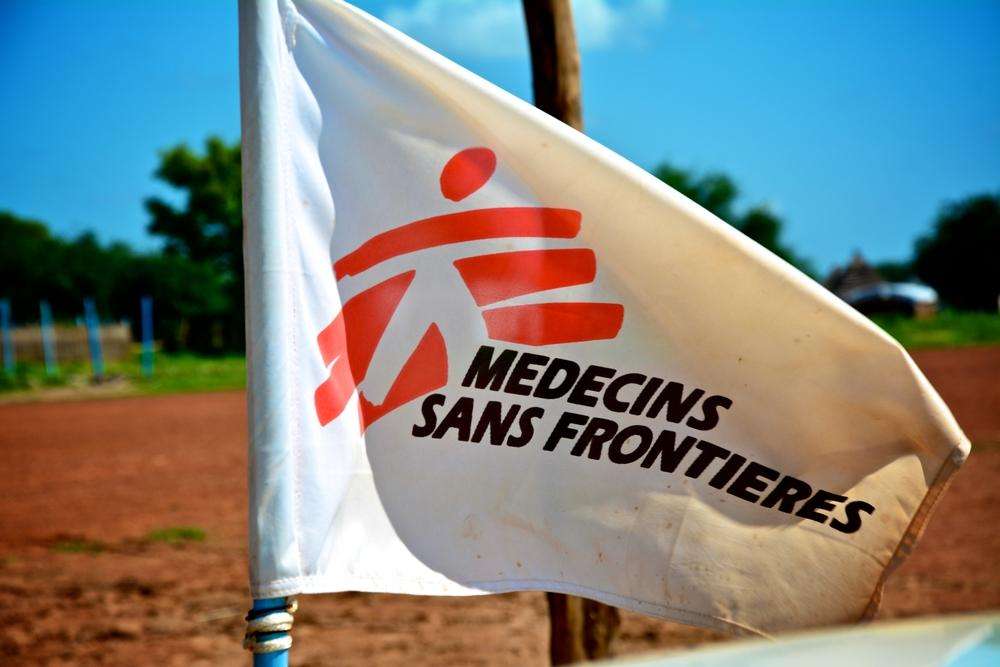BRUSSELS/NEW YORK—A relentless military offensive in Syria's besieged eastern Ghouta enclave is causing widespread disaster and massive casualties, with at least 4,829 people wounded and 1,005 dead within two weeks, the international medical humanitarian organization Doctors Without Borders/Médecins Sans Frontières (MSF) said today, drawing on data from hospitals and clinics that MSF supports.
These numbers, from the evening of February 18 to the evening of March 3, reveal a sharp increase in casualties at a time when medical supplies are extremely limited, medical facilities have been hit by bombs or shells, and the medics on the ground are completely overwhelmed.
"Daily, we hear an increasing sense of hopelessness and despair, as our medical colleagues reach the limits of what a person can be expected to do," said Meinie Nicolai, MSF general director. "They are exhausted to the point of collapse; permanently in fear of bombs or shells directly hitting their location. They are trying their best to keep some semblance of a medical service operating, but everything is overwhelmingly stacked against them. The situation, and the unrelenting trampling of the rules of war by the fighting parties, are pushing them to do the impossible."
This data was collected from 20 medical facilities that have received support from MSF. Ten are fully supported by MSF, with medical supplies, financial support, and technical medical advice and training, while the other 10 have received emergency medical donations from MSF's remaining medical stocks inside the eastern Ghouta enclave.
Fifteen of the 20 hospitals and clinics that MSF is supporting were hit by bombing or shelling from February 18 to March 3, with varying degrees of damage, further reducing their capacity to provide care. Four of the medics in facilities MSF supports have been killed and 20 wounded.
MSF's reserve stocks of medical supplies in eastern Ghouta are being distributed amid the almost ceaseless bombing and shelling, but they are being consumed rapidly by the supported facilities, and some key items, particularly for surgery, have run out. An official aid convoy granted access to the northern part of the enclave on March 5 had medical items removed by the government of Syria, according to the United Nations, which was a co-manager of the convoy. The need for a massive medical resupply, without lifesaving items being removed, is increasingly urgent with each passing hour.
MSF's figures are incomplete, as two MSF-supported facilities have not yet submitted data for March 3, and they do not include injury and death reports from medical facilities in eastern Ghouta that are not supported by MSF.
In accordance with basic rules of international humanitarian law, MSF reiterates its urgent call to all the fighting parties and to all their supporters:
- Pause the bombing and shelling to allow a reorganization of the medical response;
- Ensure before, during, and after any pause in fighting that civilian areas and infrastructure on both sides, including medical facilities, are not hit;
- Allow the unobstructed resupply of lifesaving medicines and medical supplies, without lifesaving items being removed from aid convoys;
- Allow medical evacuation of the most critical patients; and
- Allow independent humanitarian medical bodies to enter the area to provide hands-on assistance.
Medical needs go beyond war-wounded patients. In most neighborhoods of eastern Ghouta, most residents are living in basements and makeshift underground shelters in unsanitary conditions with limited safe drinking water and often no hygiene or sanitation facilities. Before the enclave-wide military offensive started on February 18, MSF had already increased assistance to a field hospital in the Harasta neighborhood, where bombing and shelling have been intense since November 2017, and where about 70 percent of the population were already living underground. The medical data from that neighborhood showed clear increases in respiratory infections, diarrheal diseases, and skin infections, with many of these patients being children.
MSF directly operates five health facilities and three mobile clinic teams in northern Syria and has partnerships with five facilities. MSF also provides distance support to about 50 health facilities in areas of Syria where teams cannot be directly present, including in eastern Ghouta. Some of these are regularly supported and others receive emergency medical donations at times of dire need.
MSF's activities in Syria do not include areas controlled by the Islamic State group since no assurances about safety and impartiality have been obtained from their leadership, nor can MSF work in government-controlled areas since MSF's requests for permission to date have not resulted in any access. To ensure independence from political pressures, MSF receives no government funding for its work in Syria.




